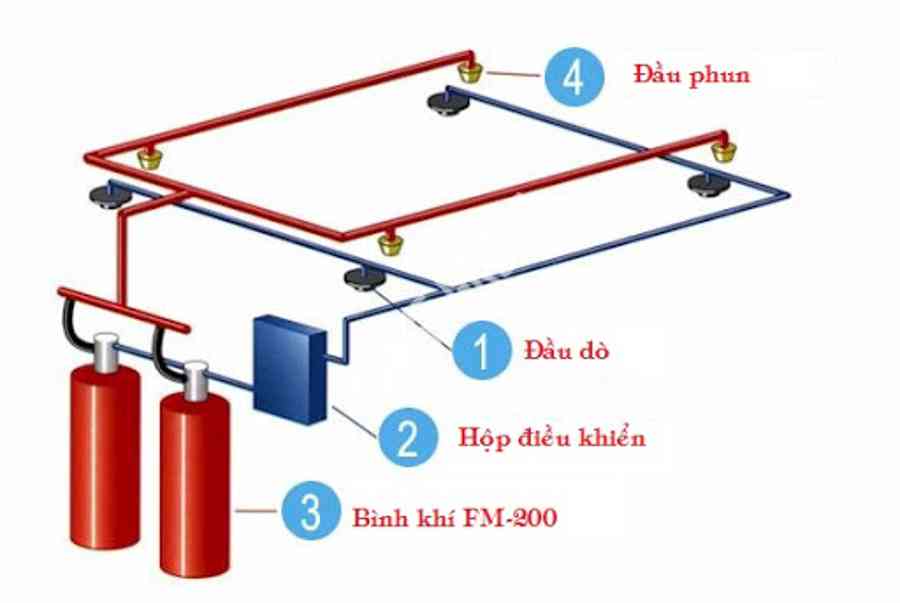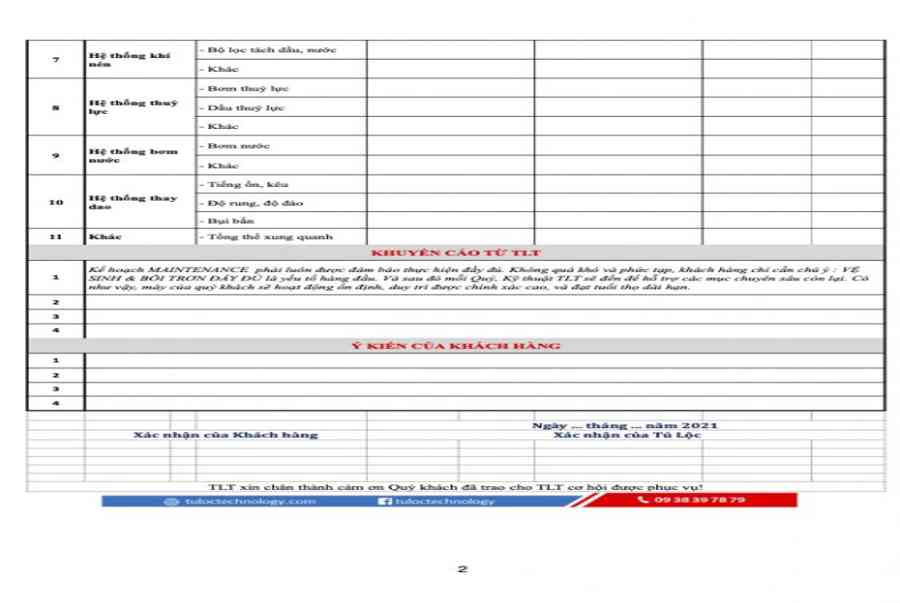gas – Wiktionary
Phân Mục Lục Chính
- English[edit]
- Afrikaans[edit]
- Basque[edit]
- Catalan[edit]
- Dutch[edit]
- Galician[edit]
- Icelandic[edit]
- Indonesian[edit]
- Interlingua[edit]
- Irish[edit]
- Italian[edit]
- Latin[edit]
- Norman[edit]
- Norwegian Bokmål[edit]
- Norwegian Nynorsk[edit]
- Old Saxon[edit]
- Old Swedish[edit]
- Rohingya[edit]
- Romagnol[edit]
- Spanish[edit]
- Swedish[edit]
- Tagalog[edit]
- Welsh[edit]
- West Frisian[edit]
- Westrobothnian[edit]
English[edit]
![]() gasEnglish Wikipedia has an article on :Wikipedia
gasEnglish Wikipedia has an article on :Wikipedia
Pronunciation[edit]
- enPR: găs, IPA(key): / ɡæs /
-
Audio (US) - Rhymes:
-æs
Bạn đang đọc: gas – Wiktionary
Etymology 1[edit]
Borrowed from Dutch gas , coined by chemist Jan Baptist van Helmont in Ortus Medicinae. Derived from Ancient Greek χάος (kháos, “chasm, void, empty space”); perhaps also inspired by geest (“breath, vapour, spirit”).
Noun[edit]
gas (countable and uncountable, plural gases or gasses)
- (uncountable, chemistry) Matter in an intermediate state between liquid and plasma that can be contained only if it is fully surrounded by a solid (or in a bubble of liquid, or held together by gravitational pull); it can condense into a liquid, or can (rarely) become a solid directly by deposition.
- 2013 July–August, Lee S. Langston, “The Adaptable Gas Turbine”, in American Scientist[1]:July – August, Lee S. Langston, “ The Adaptable Gas Turbine ”, in
-
Turbines have been around for a long time—windmills and water wheels are early examples. The name comes from the Latin turbo, meaning vortex, and thus the defining property of a turbine is that a fluid or gas turns the blades of a rotor, which is attached to a shaft that can perform useful work.
-
-
A lot of gas had escaped from the cylinder.
- vaporvapour
- (uncountable) A flammable gaseous hydrocarbon or hydrocarbon mixture used as a fuel, e.g. for cooking, heating, electricity generation or as a fuel in internal combustion engines in vehicles, especially natural gas.
-
Gas-fired power stations have largely replaced coal-burning ones.
-
- (uncountable, military) Poison gas.
-
The artillery fired gas shells into the enemy trenches.
-
- 2013 July–August, Lee S. Langston, “The Adaptable Gas Turbine”, in American Scientist[1]:July – August, Lee S. Langston, “ The Adaptable Gas Turbine ”, in
- (countable, chemistry) A chemical element or compound in such a state.
-
The atmosphere is made up of a number of different gases.
-
- (countable) A hob on a gas cooker.
-
She turned the gas on, put the potatoes on, then lit the oven.
-
- (uncountable) Methane or other waste gases trapped in one’s belly as a result of the digestive process; flatus.
- wind
-
My tummy hurts so bad – I have gas.
-
2008, Nicholas Drayson, A Guide to the Birds of East Africa, page 72:
-
But anyone with that many large brown birds aroost in his cranium and that much gas in his bottom was clearly not a well person.
-
- (Hiberno-English slang) A humorous or entertaining event or person.
- 1963 May, Show Magazine[2], archived from May, Gloria Steinem, “ A Bunny’s Tale ”, in, archived from the original on :
-
Two more girls came in, one in bright pink stretch pants and the other in purple. “Man this place is a gas,” said pink.
-
- 1971, Electric Warrior, performed by T. Rex:Marc Bolan (lyrics and music), “Life’s a Gas”, in, performed by T. Rex:
-
No it really doesn’t matter at all / Life’s a gas / I hope it’s going to last
-
-
1978, “Heart of Glass”, in Parallel Lines, performed by Blondie:
-
Once I had a love and it was a gas / Soon turned out had a heart of glass
-
-
1979, “Belsen Was a Gas”, in The Great Rock ‘n’ Roll Swindle, performed by Sex Pistols:
-
Be a man, Be a man / Belsen was a gas / Be a man, kill someone
-
- 1963 May, Show Magazine[2], archived from May, Gloria Steinem, “ A Bunny’s Tale ”, in, archived from the original on :
- (slang) Frothy or boastful talk; chatter.
- (baseball) A fastball.
-
The closer threw him nothing but gas.
-
- (medicine, colloquial) Arterial or venous blood gas.
- (slang, uncountable) Marijuana, typically of high quality.
Derived terms[edit]
Translations[edit]
( countable, chemistry ) chemical element or compound
|
|
( countable ) hob on a gas cooker
|
|
( US ) gas in digestion
|
|
( slang ) entertaining sự kiện or person
|
|
See also[edit]
Verb[edit]
gas (third-person singular simple present gases or gasses, present participle gassing, simple past and past participle gassed)
Translations[edit]
Etymology 2[edit]
Clipping of gasoline.
Noun[edit]
gas (countable and uncountable, plural gases or gasses)
- (uncountable, Canada, US) Gasoline; a derivative of petroleum used as fuel.
- (US) gasoline(British) petrolsee also Thesaurus:petroleum
- (uncountable, Canada, US, by extensionby extension) gas pedalEllipsis of
- (uncountable, cryptocurrencies) An internal virtual currency used in Ethereum to pay for certain operations, such as blockchain transactions.
- Ether
- gas fee
- 2018, Andreas M. Antonopoulos; Gavin Wood, Mastering Ethereum: Building Smart Contracts and DApps[3], O’Reilly Media, →ISBN:, Andreas M. Antonopoulos ; Gavin Wood, , O’Reilly Media ,
-
Gas is the fuel of Ethereum. Gas is not ether–it’s a separate virtual currency with its own exchange rate against ether. Ethereum uses gas to control the amount of resources that transactions can use[…]
-
- 2021 November 6, Ben Butler, “Australian banks are opening up to cryptocurrency: what does it mean for you?”, in The Guardian[4]:November 6, Ben Butler, “ Australian banks are opening up to cryptocurrency : what does it mean for you ? ”, in
-
The average “gas fee” – transaction cost – of an Ethereum transaction is between US$85 and US $156, according to crypto.com data.
-
Derived terms[edit]
Terms derived from gas (gasoline)
Translations[edit]
Verb
[edit]
gas (third-person singular simple present gases or gasses, present participle gassing, simple past and past participle gassed)
Derived terms[edit]
Translations[edit]
Etymology 3[edit]
Compare the slang usage of ” a gas “, above .
Adjective[edit]
gas (comparative gasser, superlative gassest)
- (Ireland, colloquial) Comical, zany; fun, amusing.
- 2016, Liz Nugent, Lying In Wait, →ISBN, page 113:, Liz Nugent, , page 113 :
-
The other models were gas fun, though they were all a bit hoity-toity.
-
-
Mary’s new boyfriend is a gas man.
-
It was gas when the bird flew into the classroom.
- 2016, Liz Nugent, Lying In Wait, →ISBN, page 113:, Liz Nugent, , page 113 :
Anagrams[edit]
Afrikaans[edit]
Etymology 1[edit]
From Dutch gast.
Noun[edit]
gas (plural gaste)
Etymology 2[edit]
From Dutch gas.
Noun[edit]
gas (plural gasse)
- gas (substance in gaseous phase)
Basque[edit]
Noun[edit]
gas inan
Declension[edit]
| Declension of gas (inanimate, ending in consonant) | |||
|---|---|---|---|
| indefinite | singular | plural | |
| absolutive |
gas |
gasa | gasak |
| ergative | gasek | gasak | gasek |
| dative | gasi | gasari | gasei |
| genitive | gasen | gasaren | gasen |
| comitative | gasekin | gasarekin | gasekin |
| causative | gasengatik | gasarengatik | gasengatik |
| benefactive | gasentzat | gasarentzat | gasentzat |
| instrumental | gasez | gasaz | gasez |
| inessive | gasetan | gasean | gasetan |
| locative | gasetako | gaseko | gasetako |
| allative | gasetara | gasera | gasetara |
| terminative | gasetaraino | gaseraino | gasetaraino |
| directive | gasetarantz | gaserantz | gasetarantz |
| destinative | gasetarako | gaserako | gasetarako |
| ablative | gasetatik | gasetik | gasetatik |
| partitive | gasik | — | — |
| prolative | gastzat | — | — |
Derived terms[edit]
Catalan[edit]
Pronunciation[edit]
- (Balearic, Central, Valencian) IPA(key): / ˈɡas /
-
Audio
Noun[edit]
gas m (plural gasos)
Derived terms[edit]
Related terms[edit]
Further reading[edit]
Dutch[edit]
Pronunciation[edit]
Etymology 1[edit]
Coined by chemist Jan Baptiste van Helmont in Ortus Medicinae (1648), by way of deliberate similarity to Greek χάος (cháos, “chasm, void, chaos”).
Noun[edit]
gas n (plural gassen, diminutive gasje n)
Derived terms[edit]
Descendants[edit]
- Afrikaans: gas
- → Caribbean Javanese: gas
- → English: gas
- → French: gaz
- → Moore: gaase
- → Romanian: gaz
- → Turkish: gaz
- → German: Gas
- → Saramaccan: gási
- → West Frisian: gas
Etymology 2[edit]
From Middle Dutch gasse (“unpaved street”), from Middle High German gazze, from Old High German gazza, from Proto-Germanic *gatwǭ.
Noun[edit]
gas f (plural gassen, diminutive gasje n)
Etymology 3[edit]
See the etymology of the corresponding lemma form .
Verb[edit]
gas
Galician[edit]
Noun[edit]
gas m (plural gases)
Derived terms[edit]
Related terms[edit]
Icelandic[edit]
Pronunciation[edit]
Etymology 1[edit]
Borrowed from Dutch gas.
Noun[edit]
gas n (genitive singular gass, nominative plural gös)
- gas (state of matter)
Declension[edit]
declension of gas
| n-s | singular | plural | ||
|---|---|---|---|---|
| indefinite | definite | indefinite | definite | |
| nominative |
gas |
gasið | gös | gösin |
| accusative |
gas |
gasið | gös | gösin |
| dative | gasi | gasinu | gösum | gösunum |
| genitive | gass | gassins | gasa | gasanna |
Derived terms[edit]
Etymology 2[edit]
Borrowed from French gaze.
Noun[edit]
gas n (genitive singular gass, no plural)
Declension[edit]
declension of gas
| n-s | singular | |
|---|---|---|
| indefinite | definite | |
| nominative |
gas |
gasið |
| accusative |
gas |
gasið |
| dative | gasi | gasinu |
| genitive | gass | gassins |
Derived terms[edit]
Anagrams[edit]
Indonesian[edit]
Etymology[edit]
From Dutch gas (“gas”), a term coined by chemist Jan Baptist van Helmont. Perhaps inspired by geest (“breath, vapour, spirit”) or by chaos (“chaos”), from Ancient Greek χάος (kháos, “chasm, void”).
Pronunciation[edit]
- IPA(key): [ ˈɡas ]
- Hyphenation: gas
Noun[edit]
gas (plural gas-gas, first-person possessive gasku, second-person possessive gasmu, third-person possessive gasnya)
- gas,
- (chemistry, physics) Matter in a state intermediate between liquid and plasma that can be contained only if it is fully surrounded by a solid (or in a bubble of liquid) (or held together by gravitational pull); it can condense into a liquid, or can (rarely) become a solid directly.
- A flammable gaseous hydrocarbon or hydrocarbon mixture (typically predominantly methane) used as a fuel, e.g. for cooking, heating, electricity generation or as a fuel in internal combustion engines in vehicles.
Derived terms[edit]
Compounds[edit]
Verb[edit]
gas
Further reading[edit]
Interlingua[edit]
Noun[edit]
gas (plural gases)
Irish[edit]
Etymology[edit]
( This etymology is missing or incomplete. Please add to it, or discuss it at the Etymology scriptorium. )
Pronunciation[edit]
Noun[edit]
gas m (genitive singular gais, nominative plural gais or gasa)
Declension[edit]
Derived terms[edit]
Mutation[edit]
| Irish mutation | ||
|---|---|---|
| Radical | Lenition | Eclipsis |
|
gas |
ghas | ngas |
| Note: Some of these forms may be hypothetical. Not every possible mutated form of every word actually occurs. | ||
Further reading[edit]
- “gas” in
Foclóir Gaeilge–Béarla
, An Gúm, 1977, by Niall Ó Dónaill.
- Entries containing “gas” in English-Irish Dictionary, An Gúm, 1959, by Tomás de Bhaldraithe.
- Entries containing “gas” in New English-Irish Dictionary by Foras na Gaeilge.
Italian[edit]
Pronunciation[edit]
Noun[edit]
gas m (uncountable)
Related terms[edit]
Further reading[edit]
- gas in Treccani.it – Vocabolario Treccani on line, Istituto dell’Enciclopedia Italiana
Latin[edit]
Etymology[edit]
Coined by chemist Jan Baptist van Helmont (appearing in his Ortus Medicinae as an invariable noun).
Pronunciation[edit]
Noun[edit]
gas n (genitive gasis); third declension
- (physics) gas (state of matter)
- gasumgasium
Declension[edit]
Third-declension noun ( neuter, imparisyllabic non-i-stem ) .
| Case | Singular | Plural |
|---|---|---|
| Nominative |
gas |
gasa |
| Genitive | gasis | gasum |
| Dative | gasī | gasibus |
| Accusative |
gas |
gasa |
| Ablative | gase | gasibus |
| Vocative |
gas |
gasa |
Norman[edit]
Etymology[edit]
From Old French gars, nominative singular form of garçon.
Noun[edit]
gas m (plural gas)
Norwegian Bokmål[edit]
Etymology[edit]
From French gaze
Noun[edit]
gas m (definite singular gasen, indefinite plural gaser, definite plural gasene)
See also[edit]
References[edit]
- “gas” in The Bokmål Dictionary.
Norwegian Nynorsk[edit]
Etymology[edit]
From French gaze
Noun[edit]
gas m (definite singular gasen, indefinite plural gasar, definite plural gasane)
See also[edit]
References[edit]
- “gas” in The Nynorsk Dictionary.
Old Saxon[edit]
Alternative forms[edit]
Etymology[edit]
From Proto-Germanic *gans, from Proto-Indo-European *ǵʰh₂éns.
Noun[edit]
gās f
- a goose
Declension[edit]
Declension of
gās
(irregular)
| singular | plural | |
|---|---|---|
| nominative |
gās |
gās |
| accusative | gāses | gāse |
| genitive |
gās |
gās |
| dative | gāsō | gāsum |
| instrumental | — | — |
Descendants[edit]
- Low German: Goos
Old Swedish[edit]
Etymology[edit]
From Old Norse gás, from Proto-Germanic *gans.
Noun[edit]
gās f
Declension[edit]
Descendants[edit]
Rohingya[edit]
Etymology[edit]
From Sanskrit .
Noun[edit]
gas
Romagnol[edit]
Etymology[edit]
From Dutch gas (“gas”), invented by Jan Baptiste van Helmont, from Latin chaos (“chaos”).
Pronunciation[edit]
Noun[edit]
gas m (plural ghës)
Pronunciation[edit]
Noun[edit]
gȃs m (Cyrillic spelling га̑с)
Declension[edit]
Declension of gas
| singular | plural | |
|---|---|---|
| nominative |
gȃs |
gásovi |
| genitive | gasa | gásōvā |
| dative | gasu | gasovima |
| accusative |
gȃs |
gasove |
| vocative | gase | gasovi |
| locative | gásu | gasovima |
| instrumental | gasom | gasovima |
Spanish[edit]
Etymology[edit]
Borrowed from Dutch gas, coined by Belgian chemist Jan Baptist van Helmont. Perhaps inspired by Middle Dutch gheest (Modern Dutch geest (“breath, vapour, spirit”), or from Ancient Greek χάος (kháos, “chasm, void”).
Pronunciation[edit]
- IPA(key): / ˈɡas /, [ ˈɡas ]
-
Audio (Colombia)
Noun[edit]
gas m (plural gases)
- gas (matter between liquid and plasma)
- gas (an element or compound in such a state)
- gas (flammable gas used for combustion)
- (in the plural) gas (waste gases trapped in one’s belly)
Derived terms[edit]
Related terms[edit]
Further reading[edit]
- “gas”, in Diccionario de la lengua española, Vigésima tercera edición, Real Academia Española, 2014
Anagrams[edit]
Swedish[edit]
Pronunciation[edit]
- IPA(key): / ɡɑːs /
-
audio
Noun[edit]
gas c
- gas; a state of matter
- gas; a compound or element in such a state
- gas; gaseous fuels
- (plural only : gaser) gas; waste gas
Declension[edit]
| Declension of gas | ||||
|---|---|---|---|---|
| Singular | Plural | |||
| Indefinite | Definite | Indefinite | Definite | |
| Nominative |
gas |
gasen | gaser | gaserna |
| Genitive |
gas |
gasens | gasers | gasernas |
Derived terms[edit]
Anagrams[edit]
Tagalog[edit]
Alternative forms[edit]
- gaasgasoline
Etymology[edit]
Either from Spanish gas or English gas, ultimately from Dutch gas.
Pronunciation[edit]
Noun[edit]
gas
Derived terms[edit]
Welsh[edit]
Pronunciation[edit]
Verb[edit]
gas
- casSoft mutation of
Mutation[edit]
| Welsh mutation | |||
|---|---|---|---|
| radical | soft | nasal | aspirate |
| cas |
gas |
nghas | chas |
| Note: Some of these forms may be hypothetical. Not every possible mutated form of every word actually occurs. | |||
West Frisian[edit]
Etymology[edit]
Borrowed from Dutch gas.
Pronunciation[edit]
Noun[edit]
gas n (plural gassen)
Further reading[edit]
- “gas”, in Wurdboek fan de Fryske taal (in Dutch), 2011
Westrobothnian[edit]
Etymology 1[edit]
Pronunciation[edit]
Noun[edit]
gas n
Related terms[edit]
Etymology 2[edit]
Pronunciation[edit]
Noun
[edit]
gas f
- Goose.
- A round piece of butter with a depression created with the thumb.
- = klening m
Derived terms[edit]
Source: https://suachuatulanh.edu.vn
Category : Nạp Gas Tủ Lạnh












































































